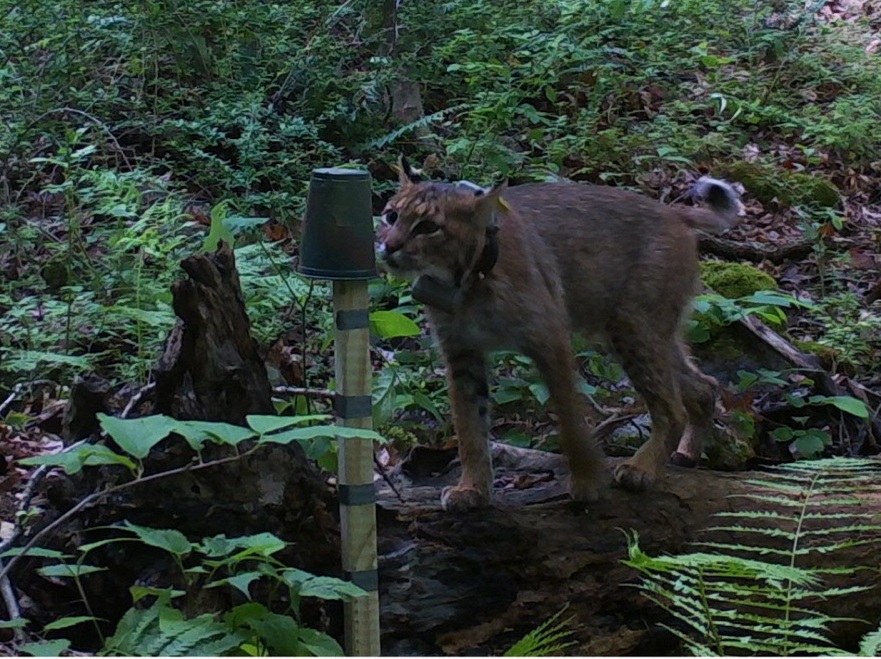In 2017, Connecticut’s Department of Environment and Energy (DEEP) began a study to determine how the state’s bobcats meet their needs in both rural and suburban environments, and understand the overall health of the population.
From the fall of 2017 to early winter 2018, the Wildlife Division of DEEP live-trapped bobcats across the state. These bobcats were marked with yellow ear tags and 50 were fitted with GPS (global positioning system) collars. Biologists also collected important data from each bobcat, including weight, age, and sex.
Of the 50 bobcats fitted with collars, three were found in New Milford; two females and one male. Over the past few months, the collars have transmitted GPS locations to biologists, creating a map of the home ranges of these bobcats. All three New Milford bobcats were tracked on Weantinoge land.One female’s home range encompasses Bear Hill, the highest point in New Milford and an area protected by Weantinoge and the Town. These home range maps highlight how bobcats are using wildlife corridors and in turn illustrate the importance of conserving land.
All of the collars were programmed to automatically detach on August 1, 2018, and DEEP’s Wildlife Division staff will be working to recover the collars (which will still be transmitting signals). If you happen to find a collar during a walk in the woods, please contact the Wildlife Division at 860-424-3045 or deep.ctwildlife@ct.gov.

